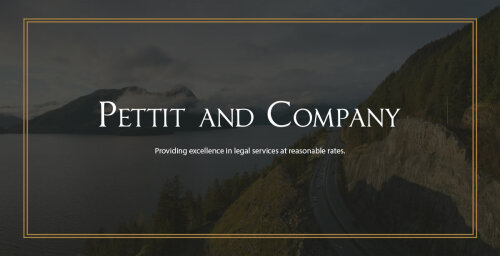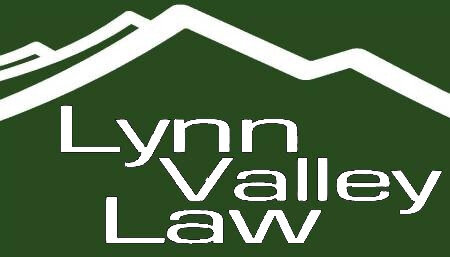Best Reinsurance Lawyers in North Vancouver
Share your needs with us, get contacted by law firms.
Free. Takes 2 min.
List of the best lawyers in North Vancouver, Canada
About Reinsurance Law in North Vancouver, Canada
Reinsurance is a mechanism through which insurance companies mitigate risk by purchasing policies from other insurers. This practice is critical in ensuring stability and solvency for direct insurers, allowing them to underwrite policies with higher limits or to insure riskier ventures. In North Vancouver, reinsurance serves as a vital component of the insurance market, embracing both local and international players. Firms operating within this jurisdiction should understand local regulatory requirements, market conditions, and nuances specific to the region to thrive effectively.
Why You May Need a Lawyer
The complexities surrounding reinsurance often necessitate legal assistance. Some common situations that may require legal help include:
- Contract Negotiations: Crafting, reviewing, and negotiating reinsurance contracts to ensure terms align with your business strategy.
- Claims Disputes: Resolving disputes between primary insurers and reinsurers related to coverage, claims administration, or policy interpretation.
- Regulatory Compliance: Navigating regulatory requirements and ensuring compliance with the guidelines set by Canadian insurance regulatory bodies.
- Arbitration and Litigation: Representation in arbitration or court proceedings over contentious reinsurance issues.
- Risk Management: Advising on the structuring of reinsurance treaties to optimize risk management.
Local Laws Overview
Reinsurance in North Vancouver is governed by a mixture of federal and provincial regulations. Key aspects include:
- Provincial Oversight: British Columbia's provincial laws regulate local insurance operations, with specific guidelines for reinsurance entities.
- Federal Jurisdiction: The Office of the Superintendent of Financial Institutions (OSFI) oversees foreign and domestic reinsurers operating within Canada, ensuring financial stability and regulatory compliance.
- Consumer Protection Laws: Regulations that protect policyholders apply indirectly to reinsurers by requiring clear, fair dealings among insurers and the end customers.
- Mandatory Licensing: Firms conducting reinsurance activities must obtain the requisite licenses and adhere to operational stipulations, including maintaining adequate reserves.
Frequently Asked Questions
What is the role of a reinsurance lawyer?
A reinsurance lawyer specializes in assisting insurance companies with legal matters related to reinsurance transactions, including drafting contracts, compliance, dispute resolution, and more.
Are reinsurance agreements subject to the same legal scrutiny as direct insurance policies?
Yes, reinsurance agreements undergo thorough legal scrutiny to ensure compliance with applicable laws and regulations, similar to direct insurance policies, but with additional layers due to their complexity.
Can a reinsurance contract be enforced in North Vancouver if it's drafted based on international terms?
Reinsurance contracts drafted under international terms can be enforceable in North Vancouver, provided they comply with Canadian legal standards and any applicable local regulatory requirements.
What should a reinsurance contract include?
A comprehensive reinsurance contract should include terms of coverage, risk transfer details, parties' rights and obligations, claims procedures, dispute resolution methods, and legal compliance clauses.
What happens if a reinsurance company defaults on their agreement?
If a reinsurance company defaults, the primary insurer may pursue legal action to recover losses, and regulatory bodies may step in to assess and manage the reinsurer's financial health and compliance.
Is reinsurance mandatory for insurance companies in Canada?
While reinsurance is not mandatory, it is a strategic tool that insurance companies use voluntarily to manage risk exposures and comply with solvency requirements.
How are reinsurance disputes typically resolved?
Reinsurance disputes are often resolved through arbitration or mediation, as stipulated in the contract terms. Litigation may be pursued if alternative dispute resolution methods are unsuccessful.
What are facultative reinsurance and treaty reinsurance?
Facultative reinsurance involves individual risk-based agreements, whereas treaty reinsurance covers a portfolio of risks under pre-defined conditions, spreading the risk across multiple policies.
How does Canadian law impact foreign reinsurers?
Foreign reinsurers must comply with Canadian laws regarding licensing, financial stability, and operational integrity while engaging with local insurance firms.
What are the latest trends in the reinsurance market in North Vancouver?
Current trends include a growing focus on technology integration for risk assessment, increased collaboration between local and global reinsurance firms, and heightened regulatory scrutiny.
Additional Resources
For further assistance or to gain deeper insights into reinsurance, consider reaching out to the following:
- Office of the Superintendent of Financial Institutions (OSFI): Federal body overseeing financial institutions in Canada.
- Insurance Bureau of Canada (IBC): Provides public resources and advocacy for the Canadian insurance industry.
- British Columbia Financial Services Authority (BCFSA): Provincial regulator for insurance operations in BC.
- Local Law Libraries: Available resources for legal research and studies related to reinsurance.
Next Steps
If you require legal assistance in the field of reinsurance, consider the following steps:
- Identify Your Needs: Clearly outline the specific area of reinsurance law you need help with, such as contract review, dispute resolution, or compliance.
- Seek Legal Expertise: Contact a lawyer or law firm specializing in insurance and reinsurance law within North Vancouver. Having specialized knowledge can greatly assist in navigating complex matters.
- Prepare Relevant Documents: Gather all necessary documentation, including contracts, correspondence, and policy details, to facilitate an efficient legal consultation.
- Consultation: Set up a consultation with your chosen legal expert to discuss your concerns and develop a strategic approach to addressing them.
- Follow Guidance: Follow your lawyer's advice on the best course of action, whether it's renegotiating terms, pursuing arbitration, or other legal remedies.
Lawzana helps you find the best lawyers and law firms in North Vancouver through a curated and pre-screened list of qualified legal professionals. Our platform offers rankings and detailed profiles of attorneys and law firms, allowing you to compare based on practice areas, including Reinsurance, experience, and client feedback.
Each profile includes a description of the firm's areas of practice, client reviews, team members and partners, year of establishment, spoken languages, office locations, contact information, social media presence, and any published articles or resources. Most firms on our platform speak English and are experienced in both local and international legal matters.
Get a quote from top-rated law firms in North Vancouver, Canada — quickly, securely, and without unnecessary hassle.
Disclaimer:
The information provided on this page is for general informational purposes only and does not constitute legal advice. While we strive to ensure the accuracy and relevance of the content, legal information may change over time, and interpretations of the law can vary. You should always consult with a qualified legal professional for advice specific to your situation.
We disclaim all liability for actions taken or not taken based on the content of this page. If you believe any information is incorrect or outdated, please contact us, and we will review and update it where appropriate.










